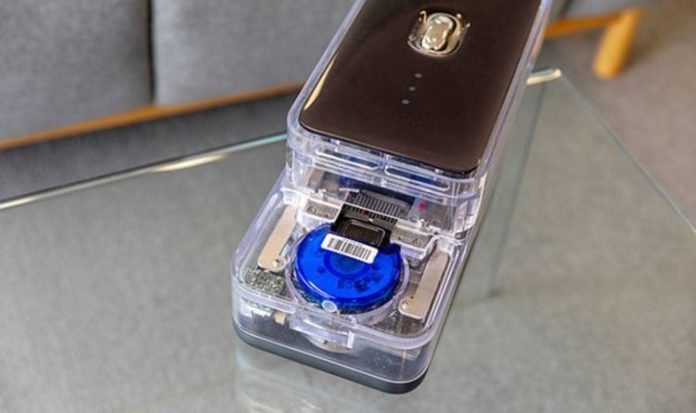The test, called CovidNudge, has produced almost perfect results when used by NHS staff and patients during the peak of the pandemic. It has been successfully trialled in three NHS hospitals and experts hope once further checks are completed it can be rolled out for mass testing, with care homes, GP surgeries and schools included.
It had a 94 percent ability to correctly test for positive cases and 100 percent ability to correctly identify negative cases, researchers at Imperial College London reveal today.
Health Secretary Matt Hancock has described CovidNudge as key to trying to ward off the virus this winter.
The test uses nasal or throat swabs which are put on a cartridge that goes into a shoebox-sized machine known as NudgeBox for analysis.
The device then looks for traces of genetic material belonging to the coronavirus. The test was used on 386 NHS staff and patients in London and is currently being used across eight hospitals in the capital with plans to be rolled out nationally.
The samples from all individuals in the study were analysed on both the rapid-testing device and standard hospital laboratory equipment and the findings published in the journal Lancet Microbe.
Professor Graham Cooke, lead author of the study from the Department of Infectious Disease at Imperial, said: “These results suggest the test, which can be performed at a patient’s bedside without the need to handle any sample material, has comparable accuracy to standard laboratory testing, which takes 24 hours.
“Many tests involve a tradeoff between speed and accuracy, but this test manages to achieve both. Developing an effective bedside test in under three months has been an incredible collaboration between teams of engineers, clinicians and virologists.”
The professor added it was better than conventional tests as it does not require a lab technician, supply is not limited and it uses paediatric swabs which are more readily available.
Each machine has the ability to process up to 15 tests on the spot each day.
The Government placed a £161million order for 5,000 NudgeBox machines last month to provide 5.8 million tests.
Professor Cooke said: “The setting that this [the test] is particularly well suited to is a healthcare setting, where you need an urgent test to either decide on a patient’s management or to try to decide where a patient goes in a hospital.”
He said that it was being distributed within the NHS with plans for 1,300 boxes to be deployed across hospitals by the end of next month at Trusts in Oxford, Birmingham and Manchester.
The intention is for the test to be rolled out to wider settings, such as care homes or GP surgeries.
Dr Bob Klaber, director of strategy, research and innovation at Imperial College Healthcare NHS Trust, said: “Getting accurate results back to clinicians and their patients as quickly as possible makes a huge difference.”
Regius Professor Chris Toumazou, CEO and co-founder of DnaNudge and founder of the Institute of Biomedical Engineering at Imperial, said the test had “very significant potential” in terms of mass testing for Covid-19.
He said: “The platform is well suited to testing in primary care and community settings with potential for use in non-healthcare settings such as care homes, schools, transport hubs, offices.”
However, further studies of effectiveness in non-clinical settings would be required prior to widespread deployment, he said. If successful, it could be the breakthrough the Government needs after an increase in demand has led to local shortages of tests, with some people being asked to go to test sites hundreds of miles away.
CovidNudge could help the Government reach its goal of up to 500,000 tests a day.
Mr Hancock has said previously: “Millions of new rapid coronavirus tests will provide onthe-spot results in under 90 minutes, helping us to break chains of transmission quickly.”







